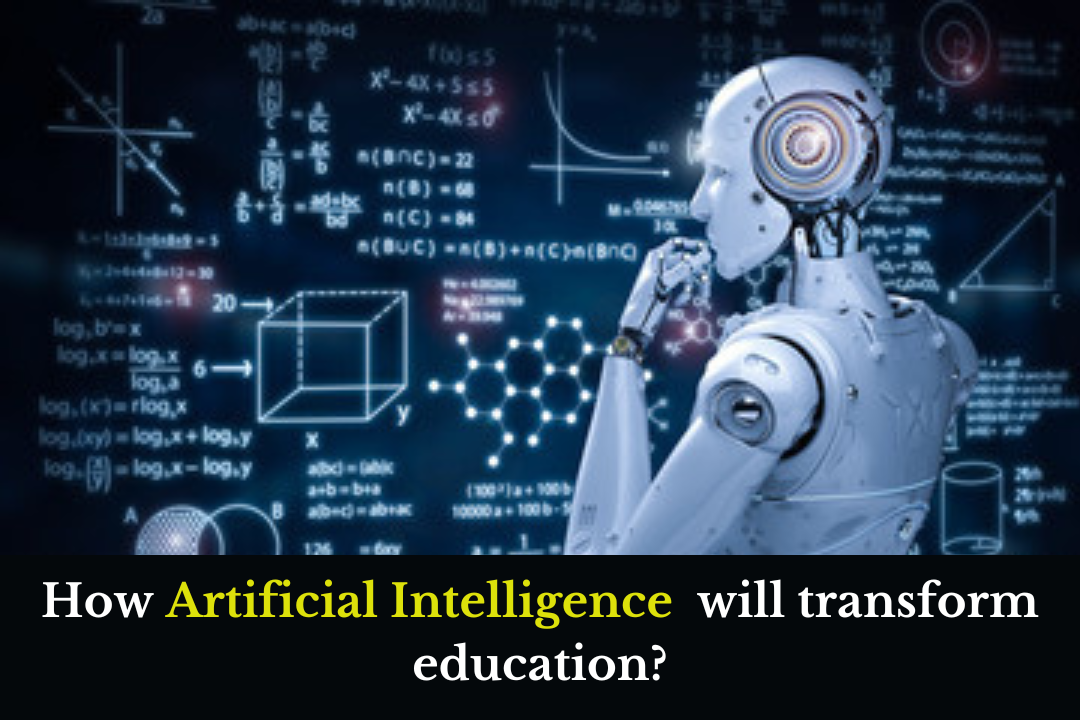As we have seen, Artificial Intelligence (AI) has already changed the traditional ways of working in different sectors. This shows how much potential AI possesses, and there is no doubt that it will change how work is done.
One more such sector affected by Artificial Intelligence is our Education Sector. It is true that ai in education has transformed our traditional teaching approaches and innovated new teaching styles and learning practices.
Let’s take a look at the old education systems. It has a few vulnerabilities like lack of personalized learning, outdated curriculums, upskilling teachers, etc.
Still, Artificial Intelligence has wholly upgraded the education system by filling the gaps and introducing new ways of helping students, teachers, schools, universities, and Institutions.
Nowadays, with the help of different Artificial Intelligence tools, we can see digitized learning in education, automated school management systems, universal access to information, and many other things.
Schools and institutions are taking the help of chatbots and virtual tutors who give quick and seamless assistance and guide them throughout the learning process.
Students are getting interactive lectures that help them with personalized and intelligent learning.
How is AI helpful in education?
-
Adaptability: Artificial Intelligence will help educational institutions to provide adaptable access to the enormous data of students across the globe,
-
Security: secured and decentralized systems for learning and managing.
-
Learning Management System: Artificial Intelligence will enhance the LMS (learning management system) by making them user-interactive, well organized, accessing a wide range of subjects and child development tracking.
-
Guidance: Powerful Artificial Intelligence tools will help teachers quickly give grades and feedback to students.
-
Automated process: We will see mechanical examination practices helping universities and schools smooth their internal rotation, and students will get their performance reports in no time.
-
Interactive Learning: Artificial Intelligence in Education will completely change the learning approaches as learners get visualized and interactive content, making their learning intelligent and engaging.
-
Real-time Analysis: With the help of Artificial Intelligence, teachers will get real-time analytics of their students, and they’ll be able to access insights from the student’s performance data and help make better student-oriented strategies and plans based on the strengths and weaknesses of their students.
-
Nonteaching staff: AI will also help them automate their process and overcome the workload.
Artificial Intelligence and machine learning will have streamlined the operations and automating tedious tasks. Teachers will now be available 24/7 for the students in the form of ChatBot and virtual tutors. Students not only ask questions out of the syllabus but can access knowledge from the deep and will customize their studies based on need.
What will be the challenges?
AI has shown how it has revolutionized learning and improved education, but on the other hand, it also creates some early signs of challenges that we need to know. As generative AI keeps developing daily, we must be aware of future risks:
-
Technical Expertise: Teachers and workers unfamiliar with AI will find it challenging to integrate who need to become more familiar with AI. Also, they will need support or training to get started.
-
High-Cost: Due to the advancement in Artificial Intelligence tools, many schools will need more resources to maintain this technology in their classrooms and operations. They must require extra funding to support.
-
Privacy: As Artificial Intelligence is becoming so popular among people, there may be some security and privacy concerns. Teachers and practitioners must be aware of these concerns and protect students from these threats.
-
Cheating: Students may use this technology to solve their tests or worksheets, resulting in them needing to be more skilled and professional.
-
Biasness: Although Artificial Intelligence will answer only what they learned from the data they are trained on, it might generate data that are not aligned with the values; artificial intelligence and education both need to work together for the better future of those who come from socioeconomic backgrounds.
-
Access issues: Only some people are privileged to have access to the schools, internet and computer devices. There are still people who need better education but need access. Here, it may create an imbalance between those students who have access to AI and those who are not privileged.
-
Social Cuts: As students and teachers interact with Artificial Intelligence, their mutual interactions will decrease, eventually intensifying the lack of social connections.
Also read: What are the interview questions for artificial intelligence?

